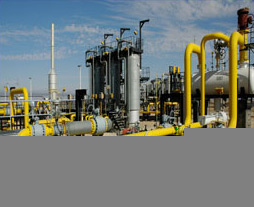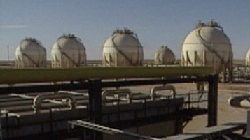Algeria is a very important oil producing country. It is a member of OPEC and its production is somewhat governed by OPEC allotments. For more facts and information, read our guide…
Algeria in 2010 held an estimated 12.2 billion barrels of proven oil reserves according to the Oil and Gas Journal. This is the third largest reserve in Africa behind Libya and Nigeria. Algeria’s largest proven reserves are located in the eastern part of the country. The Hassi Messaoud and Berkine basins are here. Hassi Messaoud is the country’s largest producing oilfield, and contains roughly 60% of Algeria’s oil reserves. Algeria’s Saharan Blend oil is considered some of the best oil in the world. It contains only 0.1% sulfur. European countries depend on this oil more and more as restrictions on the amount of sulfur in gas and diesel products have gone into effect.
The Berine basin and the Ourhoud fields nearby form the second largest oil basin. There have been a number of recent discoveries here, and have allowed an increase in Algerian oil production since 2003.
Production
In 2009 oil exports were 1.33 billion barrels of oil, down from 1.42 billion barrels in 2008. This was due to OPEC cutbacks. The largest importer of Algerian oil is the United States. This amounted to 27% of Algeria’s oil exports.
It is estimated that Algeria has a production capacity of 450,000 barrels of oil per day. Refineries are spread across the country.
Pipelines
There are seven different coastal terminals used to export oil. The outlets are at Arzew, Algiers, Annaba, Oran, Skikda, Bejaia and La Skhirra with La Skhirra being in Tunisia.
Algeria uses domestic pipelines to transfer the oil from the production fields to the exporting terminals. Sonatrach, a government owned company, operates over 2,000 miles of oil pipelines. The most important pipelines carry crude oil from the Hassi Messaoud oilfield to the terminals. There is a second parallel pipeline from this field to the exporting facilities which more than doubles the capacity.
Sonatrach announced in 2008 that there would be a renovation of existing pipelines. When completed the capacity for the flow of oil from field to exporting terminals will be able to be increased.
Importance of Algerian Oil
With the social unrest in Africa and the Middle East creeping into Algeria, the question that comes to mind is what would happen if Algeria no longer produced oil. It is estimated that if Algeria and Libya combined stopped oil production completely, crude oil would go to $220 per barrel. Libyan production is already greatly reduced due to its civil war. Similar conflicts in Algeria would create almost a culture shock to the United States and certainly most of the world.





